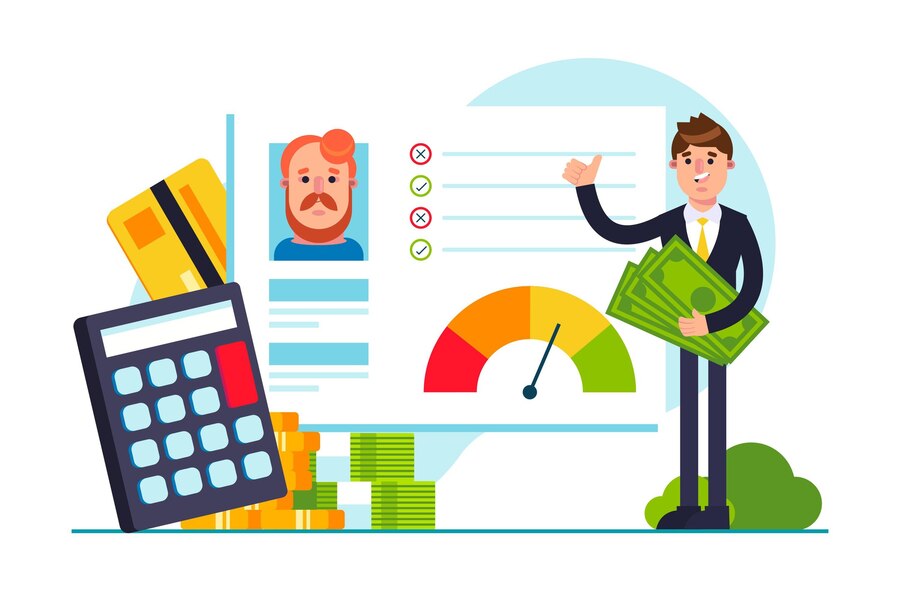Your CIBIL score plays a pivotal role in shaping your financial journey and influencing your ability to secure credit and loans. However, misconceptions about CIBIL scores abound, leading to confusion and potentially impacting financial decisions. In this blog post, we will debunk some common myths surrounding CIBIL scores, providing clarity and empowering you with accurate information.
Myth 1: Checking Your CIBIL Score Harms Your Credit Score
One prevalent misconception is that checking your CIBIL score can negatively impact it. The truth is, when you check your own CIBIL score, it is considered a “soft inquiry” and does not affect your score. Regularly monitoring your CIBIL score is a responsible financial practice, allowing you to stay informed about your credit health.
Myth 2: Closing Credit Accounts Improves Your CIBIL Score
Some individuals believe that closing unused credit accounts can boost their CIBIL score. However, closing accounts may have the opposite effect. Your CIBIL score considers the length of your credit history, and closing older accounts can shorten this history, potentially lowering your score. It’s often advisable to keep older accounts open, even if they are not actively used.
Myth 3: A High Income Guarantees a High CIBIL Score
While a higher income can positively impact your ability to manage credit, it does not directly determine your CIBIL score. Your score is based on your credit history and financial behaviours, such as timely payments and responsible credit utilization. High earners with poor credit habits may still have a lower CIBIL score, emphasizing the importance of financial responsibility.
Myth 4: Paying Off Debts Erases Negative Remarks Immediately
Paying off outstanding debts is undoubtedly a positive step, but it doesn’t erase negative remarks from your credit report immediately. Late payments, defaults, or settlements may remain on your report for a specified period. Over time, as you consistently demonstrate responsible financial behaviour, the impact of these negative remarks lessens, contributing to scoring improvement.
Myth 5: CIBIL Scores Only Consider Credit Cards
Some believe that CIBIL scores are solely influenced by credit card usage. In reality, your CIBIL score considers various credit accounts, including loans, credit cards, and retail accounts. A diverse credit portfolio managed responsibly, can positively impact your score.
Myth 6: Closing a Credit Card Improves Your CIBIL Score
Closing a credit card may seem like a prudent move, but it can impact your credit utilization ratio. If you have multiple credit cards and close one, your overall credit limit decreases, potentially increasing your credit utilization percentage. As mentioned earlier, maintaining a low credit utilization ratio is crucial for a healthy CIBIL score.
Myth 7: Settling Debts Has No Impact on Your CIBIL Score
Settling debts for less than the full amount agreed upon may be viewed negatively by lenders and can impact your CIBIL score. While settling may be a viable option in certain situations, it’s essential to understand the potential consequences and work towards more favourable resolutions.
Myth 8: Closing Inactive Accounts Boosts Your CIBIL Score
Closing inactive accounts might seem like a good way to declutter your credit profile, but it can have unintended consequences. As mentioned earlier, the length of your credit history contributes to your CIBIL score. Closing inactive accounts, especially older ones, may shorten your credit history and potentially lower your score.
Myth 9: Your CIBIL Score Reflects Your Entire Financial Situation
While your CIBIL score is a significant indicator of your creditworthiness, it does not encapsulate your entire financial situation. It doesn’t account for factors like income, assets, or job stability. Lenders may consider these additional factors when making credit decisions.
Myth 10: CIBIL Scores Are Static and Unchangeable
Contrary to popular belief, CIBIL scores are not static. They can change based on your financial behaviour over time. Responsible credit management, timely payments, and addressing negative remarks can contribute to a positive shift in your CIBIL score.
Conclusion: Empowering Financial Decision-Making
Understanding the truth behind common misconceptions about CIBIL scores is crucial for making informed financial decisions. By debunking these myths, you can navigate the credit landscape more effectively, improving your credit health and positioning yourself for better financial opportunities. Regularly educating yourself on credit-related matters will empower you to take control of your financial future and build a strong foundation for long-term financial success.



